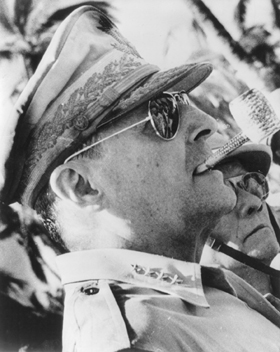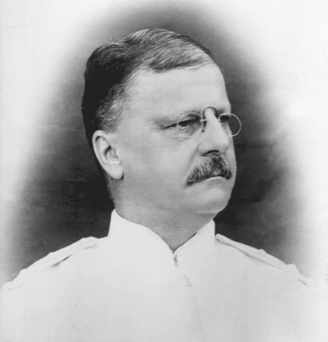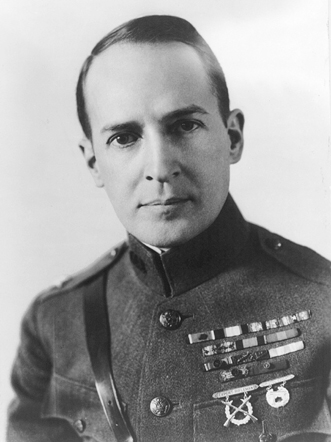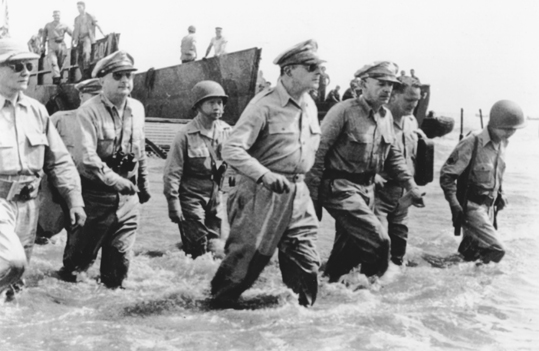Meet the famous general you never heard of.

General Douglas MacArthur was one of the most talented, flamboyant, and controversial men ever to put on a military uniform. His remarkable achievements in World War II and the Korean War have led many to regard him as the greatest military man of all time. And he certainly was a one-of-a-kind figure.
Well, not exactly.
There’s another general from an earlier era whose career was remarkably similar. Like Douglas MacArthur, he earned his reputation fighting in the Pacific. Like Douglas MacArthur, he thrilled the nation with his exploits in the Philippines. Like Douglas MacArthur, he rose to become the highest-ranking general in the army. And, like Douglas MacArthur, he was eventually removed by the president for insubordination and brought home, triggering a national controversy.
Both men came within a hairsbreadth of being killed on the battlefield. Both were nominated as young officers for the Congressional Medal of Honor, but didn’t actually receive the award until decades later.
Is it just an odd coincidence that Douglas MacArthur’s career so closely mirrored the life of this earlier military hero? Just a random happenstance?
Unlikely.
Because that man was General Arthur MacArthur, Douglas MacArthur’s father—whose greatest legacy may have been the son who spent a lifetime trying to live up to his old man.
“ARTHUR MACARTHUR WAS THE MOST FLAMBOYANTLY EGOTISTICAL MAN I HAD EVER SEEN . . . UNTIL I MET HIS SON.”
— COLONEL ENOCH CROWDER, AIDE TO GENERAL ARTHUR MACARTHUR
Neither man’s ego was able to handle being subordinate to civilian authority. When President McKinley appointed a civilian governor of the Philippines, Arthur MacArthur, then military governor, accused him of “unconstitutional interference.” Douglas MacArthur labeled his own sacking by the president as one of the most “disgraceful plots” in U.S. history.


Arthur MacArthur fought in the Civil War, the Indian Wars, and the Spanish-American War, while his son, Douglas, saw action in World War I, World War II, and Korea. Together their careers spanned nearly a century of U.S. military history.

When Douglas MacArthur came ashore during the retaking of the Philippines in 1944, the beachmaster wouldn’t let his landing craft tie up at a dock, and he had to wade ashore in his freshly cleaned and ironed uniform. MacArthur was angry, but later, when he saw a photo of it, he realized its great publicity value. The following day he staged another wading ashore for the newsreels.